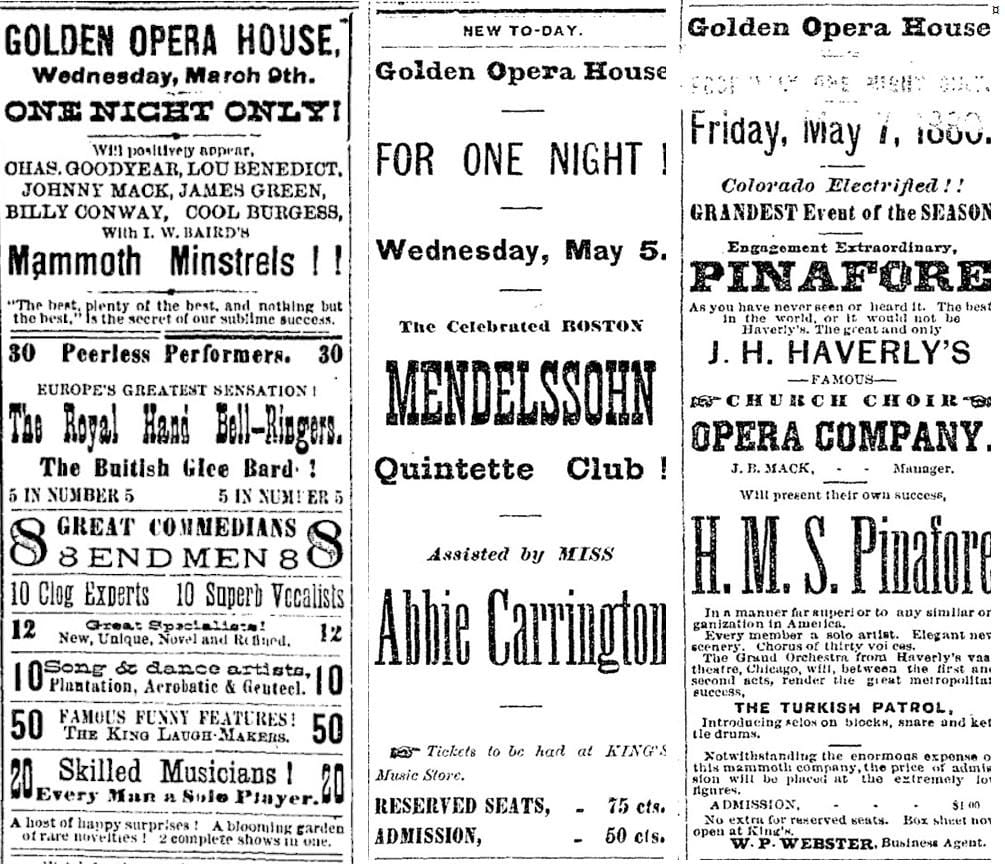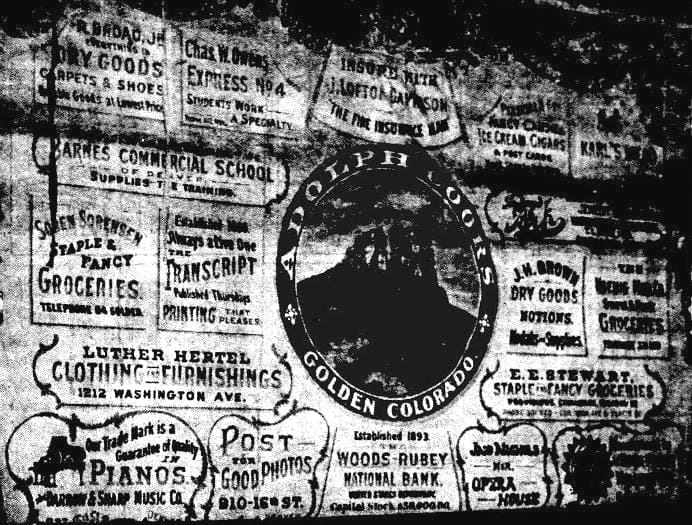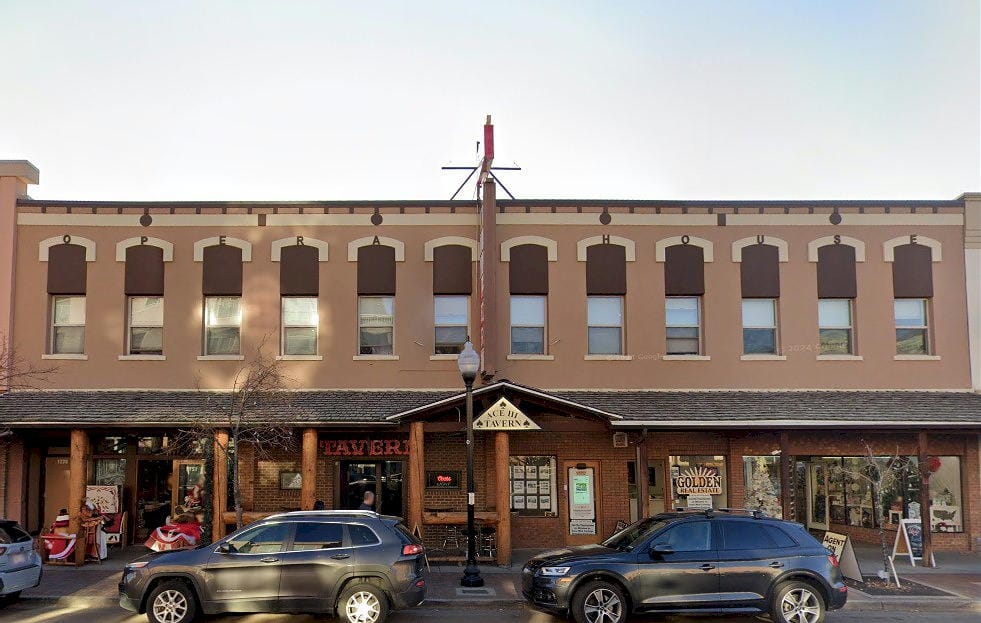Continuing with this month’s highlighting of Golden’s cultural organizations, here’s a shout-out to a long-ago business that no doubt would have belonged to the Golden Cultural Alliance if it had existed back then.
The Ace Hi Tavern building was originally the Golden Opera House. Does it seem strange to think that a small, western town like Golden would have needed an Opera House? Were we really such opera devotees? (No.)

Opera Houses were very popular in the half century or so after the Civil War. Big cities had them as well as small towns, but in big cities they probably had multiple entertainment buildings that specialized for theater, symphonies, and operas. In smaller towns, one structure hosted all entertainment needs. According to Ann Satterthwaite’s Local Glories: Opera Houses on Main Street – Where Art and Community Meet, Colorado built 132 opera houses in 68 towns and cities between 1860 and 1920. Golden’s was built in 1879. The ground floor had stores or restaurants and the performance area was on the second floor.

Many troupes of entertainers traveled the country and scheduled stopovers in opera houses as they went. Over the years, the Golden Opera House hosted plays, comedians, orchestras, singers, vaudeville shows, dances, church services, political meetings, dance classes, and graduations (both Golden High School and the School of Mines). Minstrel shows were very popular, and we hosted many, many productions of Uncle Tom’s Cabin. The Golden Opera House hosted Blind Boone, Henrietta Vinton Davis, and William Jennings Bryan.
Public tastes and needs changed as technology developed. When the Golden Gem theater opened in 1908, motion pictures suddenly became the most interesting thing to watch. When the Gem moved into the big, modern building at 13th and Washington, it offered a newer, nicer auditorium than the aged Opera House. Then radio came along. Then television. The Opera House was used less and less over the years, though the Fire Department still used it for dances in the 1930s.

In 1956, the building incurred severe damage in a windstorm and the city condemned it. One of the first floor tenants bought the building and had it repaired. She divided the seldom-used performance space on the second floor into individual offices. The Ace-Hi Tavern was already in operation by then. In 1961, the Stillman family bought not only the bar but the entire building. It is now owned by the third generation of that family.









